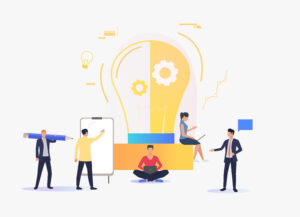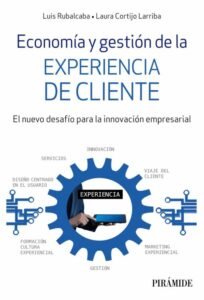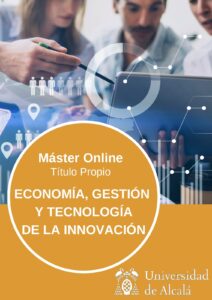By Luis Rubalcaba, Professor at the University of Alcalá
In the midst of the public health crisis and the terrible drama that is devastating much of the world, I propose some reflections on the economic crisis that accompanies it and that will remain for a while, once the virus has disappeared or is controlled. I intend to offer questions before answers. It seems to me that we are in a time of questions and reflection, of asking ourselves, of putting the questions that help us work and build in the direction of drawing lessons learned, judgments that help in our economic work, so full of uncertainties today. I do not propose to say how we will get out of this situation or to talk about the best policies to do so. We’ll do that later and there will be plenty of time for that. For now, these are some reflections with substantive issues.
- Fall of evidence and a resemblance to the 2007-2011 crisis
- The world has already changed, and us?
- The future of land, labor and capital: the resources of change
- The protagonists of change
The current crisis supposes the fall of the last of the economic evidence accumulated from the times of peace in the middle of the 20th century until today: there is no longer, it has been said, any war that endangers our lives and our economy in a general way; Fortunately, world wars are a thing of bygone times, just as global epidemics and plagues were typical of centuries ago, and the so-called Spanish flu ended just a century ago. It is as if, since the mid-20th century, the world has always walked on a path of well-being that not even the terrorism of 9S and 11S or the armed conflicts that have marked the recent evolution of many developing countries, including the wars in Iraq and Syria , have managed to question the “evidence” that one could live one’s own work and the economy without fear of the old crises. Question: Why do we tend to think that the world and the economy move towards linear progress, always for the better? Ancient times seem to have returned. A century after 1918, a new virus shakes the world on a scale never seen in recent history. The crisis of Ebola and other viruses seemed to show the strength of the developed world capable of containing even the most virulent epidemics outside its borders. But the current crisis shows that past success against Ebola was not the result of our strength as a society, but of our weakness in the face of that virus, unable to spread on a large scale and to travel asymptomatically in patients for weeks. Bill Gates already prophesied it in 2015, this could happen to us and we were not prepared. Surely we should have invested more in research and innovation to fight pandemics. Today the pandemic has features more similar to that of 1918 than to that of Ebola, and the economy is facing a very substantial reduction in GDP, the OECD predicts a 2% reduction for each month of confinement. Question: But what is not done is not done. And now, wthat?
Everyone says that this is now a unique short-term economic crisis of supply and demand, nothing like the previous crises. And that statement is largely correct. The economic imbalances of 2007 are not in 2020, although, beware, that certain corrections are being made due to weaknesses not yet well healed, which the previous crisis manifested and that make us weak before crises like this one, has the real estate bubble healed well? Have the balance sheets been completely cleaned up? Were debt excesses adjusted to repayment possibilities? Do stock values follow the evolution of the real economy? Some of these answers are not exactly positive and that is why some of the corrections that we are already seeing are born.
This crisis is expected to be very acute, but at the same time, a quick reaction, a quick return to normality, a V-shaped recovery: free fall with the coronavirus crisis, quick recovery after death or virus control. Hopefully it will be like that!
But there are some similarities between the two crises. The most important is that then the alleged evidence fell that the value of real estate and many assets could not just go up and up, and that the financial system could not collapse as it did. This evidence fell, just as the evidence now falls that the world can never stop producing and growing: now we see a large part of the world on “forced sick leave”, all economic activity stopped, overtaken by a highly lethal virus . And again we are impelled to think more in the long term.
Just as the 2007 crisis meant the crisis of short-termism in part of the financial world, in the uncontrolled indebtedness of the entire world (governments, companies, individuals), in the myopic regulatory and political bodies that mismeasured latent problems and their impacts and they made inadequate economic policies, the current crisis of 2020 supposes the crisis of a certain growth model that excludes situations such as those of the current pandemic. No one is interested in spending to invest to prevent something that may take 100 years to repeat itself (100 years is thinking in the long term!). Obviously, this expense and investment would correspond to the governments, since it is possible that there are no markets whose products are used in such a long and uncertain term. The governments will have to think in a long term that surely will not give many votes when a few years of the crisis pass. In addition to anticipating regulatory changes that allow dealing with such terrible situations that the economy and the labor market are also suffering..
But not only governments will have to act. Also companies, once they can overcome the current blow, will have to establish protocols and ways of acting that allow them to face situations like the current one, without being caught off guard and without provisions or provisions. And individuals and families should also keep in the corner of their eyes that social and family relationships must be built in a certain way for times of crisis like the current one. Nobody can act as if this had not happened. The crisis calls for unity and a common construction within each area, a unity that is not built overnight.
Again more questions: when we are called to live the present giving thanks for the life that is given to us every day, the need also arises to build in the medium and long term, in those actions that do not entail immediate monetary benefit, but generate relationships and investments for the good of all, for the common home The questions are clear: have we learned lessons from the previous crisis that allow us to overcome the current crisis? How are strong social and economic relationships generated that look to the common good, above immediate or merely lucrative interests? What or who can build long-term in a society so that future generations live grateful for the legacy of the current one, where the coronavirus crisis represents a qualitative leap in our way of doing things well?
After this crisis, the world has already changed, what about us? This was written to me yesterday by a friend of mine from Mexico, scaring me about what is coming in COVI19. Surely something has already changed in us. With a large part of the world’s population forced to telecommute, and with many who have lost their jobs or lost their jobs, we are called not to stand still. In the same way that a commendable vocation and generosity leads many health workers and other services to give their skin, and literally their lives at times, to respond to the pandemic and fight for survival, there is also something inside all of us that, still confined to our things, forces us to “get out” in one way or another, to respond to what is happening, even if we don’t know how. Question: Is anyone able to say how we will get out of this? The domestic and family economy has already changed. In times of confinement we see ourselves streamlining resources more, moderating our consumption, forced to work and live thinking about the health and well-being of all those around us with their WhatsApp and all kinds of modern modes of communication. Paradoxically, in time of confinement, you have never been in such contact and in such an easy way. The awareness of society that leads us to applaud the toilets in the afternoon from the terraces and balconies is the awareness that leads us to be immersed in our mobiles looking for the company of those who are fighting in this new war against an invisible enemy. We fight against an invisible enemy that requires visible faces, we need to recognize our battalion comrades, and we need to be together and leave no one behind, especially our elders. It’s our way out of the trench. Being confined is not enough for us to win the war. Feelings and gestures of solidarity that are multiplying these days, like those of those who are physically giving their lives for others these days. Something is already changing in many, so many that they come out of the trenches to fight with the telephone or videoconferences, even if they don’t leave their house. But, when this war is over, a lot of questions, what then? With an economy in recession, businesses closed and workers unemployed, how will we get out of this? Will that new social conscience that allows a more humane, more supportive and fairer social construction of life and economy continue to be alive?
The economy is the way to take care of the order of limited resources adapted to our unlimited desires, with three resources that we have that will definitely change after these days of crisis with the coronavirus: land, work and capital, say the basic economics manuals.
The earth is space, it is the planet, the place where we work that also changes. This place has changed our house today more common than ever. Many have discovered that working from home is possible. And reconcile work and private life from home too, although it is often not the ideal place and in certain professions it is not possible to work remotely. In agriculture and industry it is not. And in many personal services such as commerce either. But there are many services to production where it is possible. It is very possible that teleworking will grow and much after this crisis. And that the working time in the office or the physical place is more productive, more intense, more used. And it will also be more respectful of the planet’s natural resources. What seems clear is that our environment and workplace is transforming, ask, what will our workspace be like in the future?
Work, our work, the center of economic activity, is also affected by the crisis. First of all, the labor market is going to see many challenges arise, unemployment being the first of them, so that societies may have to open up to fight against the old known enemy that never dies: unemployment. And with this enemy, the markets will ask for more flexibility. On the other hand, the new jobs will value more intelligence to adapt to new challenges, flexibility and training to offer to work in more uncertain environments. Crises always force you to reinvent yourself, to go out again. For this, training and education in its broadest sense are fundamental. We have to educate and train while waiting for a crisis like this. We must not run away from looking the collapse of the safe world in the face and, on the contrary, we have the challenge of transmitting the passion for living every moment of the present, for learning everything great that the world offers through knowledge, science and the truth behind each reality. I believe that the work of teachers and teachers can take on a more authentic dimension with the crisis, more capable of asking the right questions and of educating by uniting contents, abilities, skills and affections around an attentive curiosity to grow in knowledge and in the know each other in this society, working with others for the construction of the common home. Question: Are we sure we can face a new form and culture of work that requires new educational and training challenges?
Capital, technology, is key in managing and getting out of the coming economic crisis. Just as the crisis allows us to have a confinement in connection with others, technology will offer new options to work, new jobs for new solutions to the world’s problems. Technology, and the services associated with it, represent the new capital to face the economy after the virus. Just as Big Data is going to be used to predict new crises and avoid pandemics as much as possible or allow more agile responses by anticipating problems, and more accurate monitoring of infections, the entire world of work is going to become more digital, more technological, while more interconnected with the rest of society. The work will have to take into account technological and non-technological innovations much more. Question: Will we be able to take advantage of all the innovation we need to respond to crises?
And from governments, what can be expected? In the face of a crisis that combines supply and demand, which is complex and leaves no one unscathed, higher spending solutions to deal with the looming crisis are absolutely necessary, but surely insufficient . The strength to come out of the crisis will not come from governments, it will come from people, families, companies, public entities and third-sector organizations, in their ability to understand the new challenges and adapt to them. Governments will have to help a necessary transition, beyond solving or helping to solve short-term problems. Obvious question: Will the rulers be able to promote and accompany the recovery?
To rebuild in the economy, a new personal and social impulse will be needed, protagonists capable of fighting battles, without the paralyzing fear of the unknown and of crises. To do this, not to be afraid of losing, to be willing to take risks at work or in entrepreneurship in a context of crisis, final questions, what is needed? Who has the capacity to take risks in a time of crisis? Perhaps a paralyzing fear of losing what this crisis has shaken or what we have left will predominate? What if we need entrepreneurs with the awareness that in life you already have everything so that you can take risks without fear of losing anything essential?





